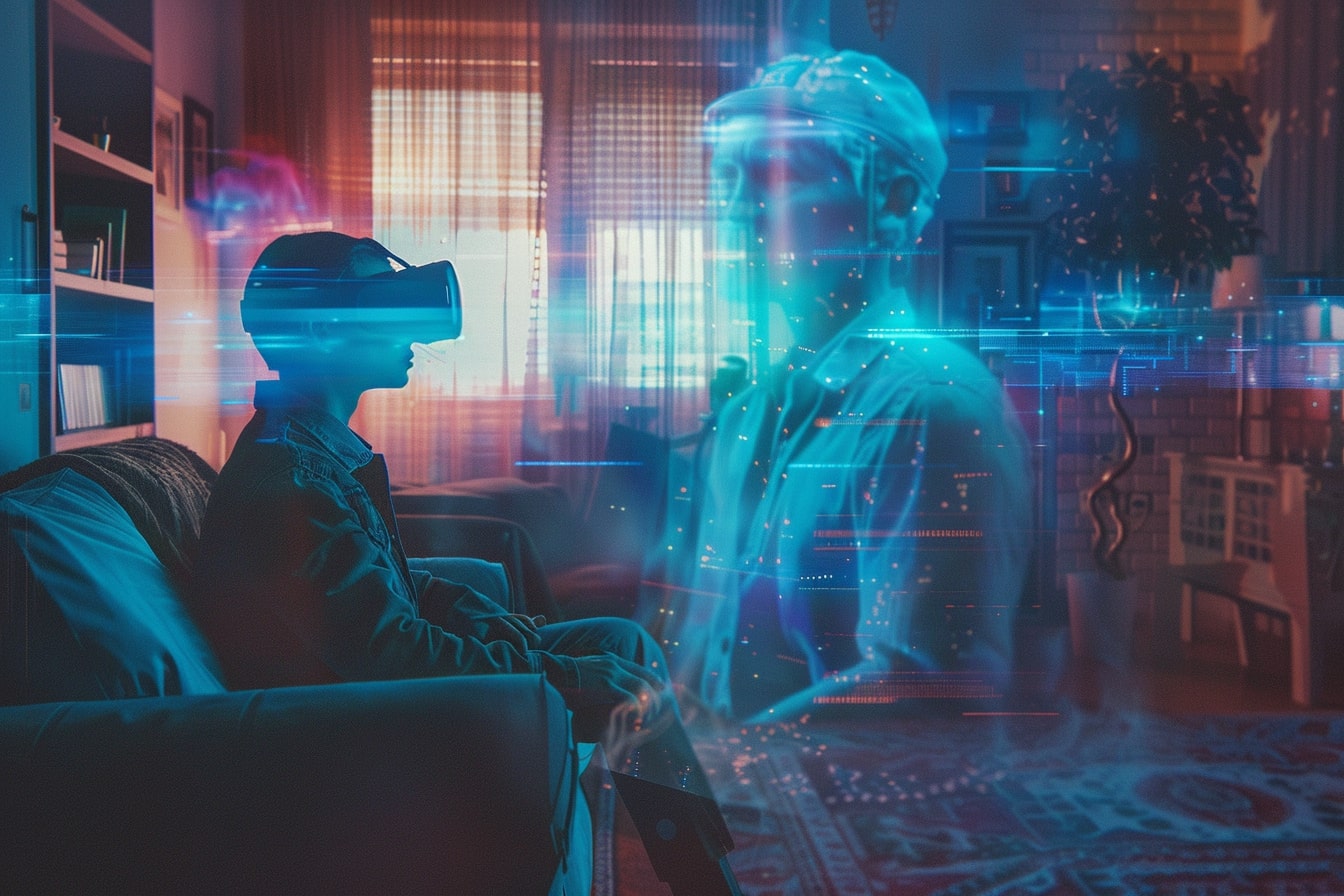
This is an AI-generated image created with Midjourney by Molly-Anna MaQuirl
Have you heard about 'deadbots'? These intriguing artificial intelligence systems allow the living to speak with the dead by simulating conversations using virtual avatars of deceased individuals.
Eternal You is a documentary that explores the use of AI avatars as a unique way for humans to connect with their deceased loved ones. This cutting-edge technology can be a significant source of comfort, providing a unique way to cope with grief in times of loss while offering a hopeful perspective in the face of bereavement. It's a novel approach that may intrigue and open new possibilities for coping with loss, providing a way to keep the memory of the deceased alive and a sense of closure.
The innovative film documentary by Hans Block and Moritz Riesewieck takes a relatively cynical look at the use of AI to recreate a dead person's voice, personality and appearance, as an attempt to build another income stream for GenAI. It's a market that could either numb the pain or provide a thrilling, albeit unusual, experience.
The double-edged sword of AI presents a significant opportunity to feel close to deceased loved ones but also carries risks and ethical implications. Just as deepfakes create misleading content, using digital avatars of deceased persons has risks when it comes to the sensitive realm of grief support and users' emotional wellbeing. Using ethically responsible AI is key to ensuring the safety and security of all involved.

This is an AI-generated image created with Midjourney by Molly-Anna MaQuirl
Have you heard about 'deadbots'? These intriguing artificial intelligence systems allow the living to speak with the dead by simulating conversations using virtual avatars of deceased individuals.
Eternal You is a documentary that explores the use of AI avatars as a unique way for humans to connect with their deceased loved ones. This cutting-edge technology can be a significant source of comfort, providing a unique way to cope with grief in times of loss while offering a hopeful perspective in the face of bereavement. It's a novel approach that may intrigue and open new possibilities for coping with loss, providing a way to keep the memory of the deceased alive and a sense of closure.
The innovative film documentary by Hans Block and Moritz Riesewieck takes a relatively cynical look at the use of AI to recreate a dead person's voice, personality and appearance, as an attempt to build another income stream for GenAI. It's a market that could either numb the pain or provide a thrilling, albeit unusual, experience.
The double-edged sword of AI presents a significant opportunity to feel close to deceased loved ones but also carries risks and ethical implications. Just as deepfakes create misleading content, using digital avatars of deceased persons has risks when it comes to the sensitive realm of grief support and users' emotional wellbeing. Using ethically responsible AI is key to ensuring the safety and security of all involved.